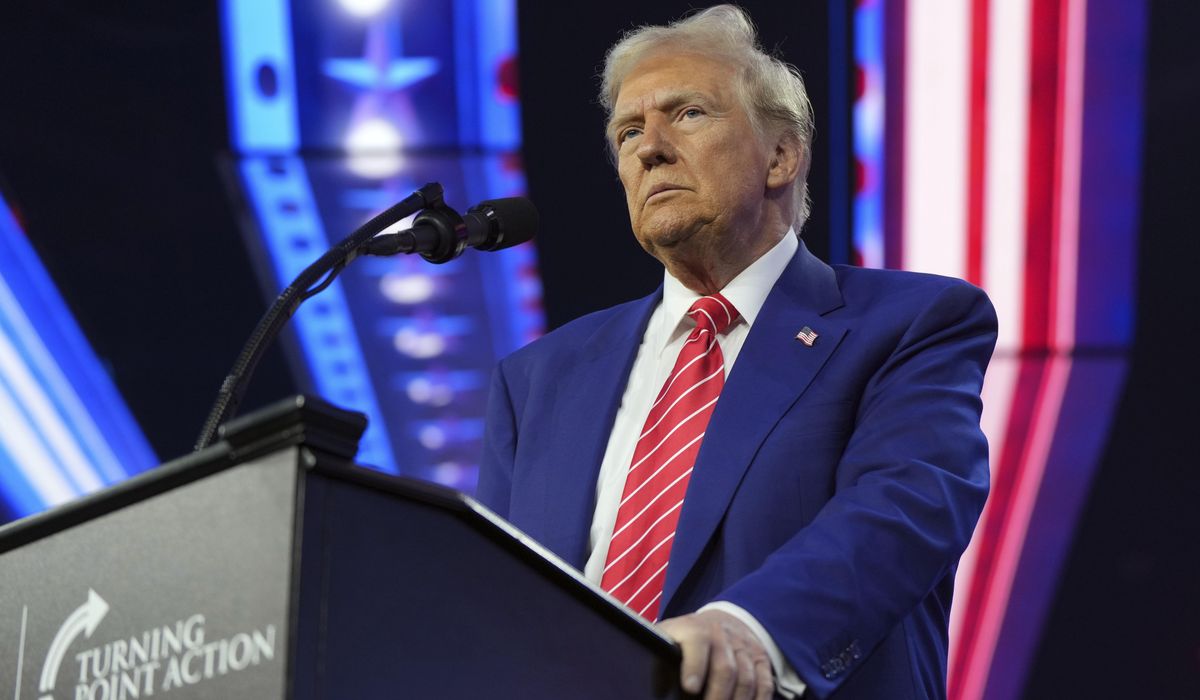


Democratic-led sanctuary cities that refused to help with deportations during President Trump’s first term are now pondering more active resistance.
Anticipating the arrival of federal immigration authorities, Denver’s mayor has mentioned stationing police “at the county line to keep them out.” Boston’s mayor has discussed identifying “spaces” to protect migrants from federal reach.
This defiance goes beyond the vocal but unconfrontational hindrances of the past and threatens to ignite severe clashes of federal-state power. Mr. Trump’s incoming border czar, Tom Homan, said sanctuaries that become too aggressive could be charged with federal smuggling crimes as facilitations of illegal immigration.
“I don’t want to go there, but if we have to go there, then we’re going to go there,” Mr. Homan said in an interview last month with the Immigration Reform Law Institute, where he served as a fellow during the Biden administration.
Mr. Homan said jurisdictions that resist federal authorities will invite what they fear: a more significant presence of U.S. Immigration and Customs Enforcement deportation officers.
“There are going to be a hell of a lot more agents in their communities than they ever imagined because we’re going to do this job with or without them,” he said.
The cities are reacting to Mr. Trump’s promise to expand deportations beyond criminals and to oust whole families if needed. The president-elect said he would start with criminals, but his definition differs from mayors’.
Boston Mayor Michelle Wu said city laws bar cooperation with deportation agents and she is planning to respond if federal authorities attempt civil immigration arrests without local help.
“We still have other mechanisms where we can identify spaces that might be most targeted and think about protections there,” she told radio station WGBH.
Denver Mayor Mike Johnston said he expects the public will rally to protect illegal immigrants from ICE.
“More than us having DPD stationed at the county line to keep them out, you would have 50,000 Denverites there,” Mr. Johnston said. “It’s like the Tiananmen Square moment with the rose and the gun, right? You’d have every one of those Highland moms who came out for the migrants. And you do not want to mess with them.”
Cities have declared immigrant sanctuaries for decades, but they were essentially the exceptions.
The idea gained ground during the first Trump administration when hundreds of municipalities embraced noncooperation.
Sanctuary policies usually come into play when state or local police arrest an illegal immigrant.
ICE will issue a detainer request and ask to be notified before the immigrant’s release so they can be on hand for a pickup. ICE also asks local authorities to hold a target up to 48 hours beyond their release date to facilitate pickup.
Some sanctuaries notify ICE but decline the extra 48-hour hold. They say they cannot detain someone on a federal civil matter. Other jurisdictions refuse all communication with ICE and decline to alert federal authorities before a deportation target is released.
Some sanctuaries cooperate when cases involve immigrants with serious criminal convictions but refuse cooperation on lesser offenses or before convictions.
Sanctuaries say immigrants won’t report crimes or cooperate as witnesses if they think local police are working with ICE. ICE leaders reject that notion and say the victims of illegal immigrant criminals are usually other immigrants.
Jessica Vaughan, policy studies director at the Center for Immigration Studies, called that a “cheap excuse.” She said sanctuaries want to stop deportations.
She said data she collected showed ICE can track down only about 25% of migrants released under sanctuary policies.
During Mr. Trump’s first term, local officials significantly increased sanctuaries to signal their displeasure with the maverick president.
Jeh Johnson, homeland security secretary under President Obama, said Mr. Trump’s tough promises on immigration could spawn even more sanctuaries.
“The continued talk about mass deportation turbocharges the sanctuary cities movement,” he recently told Fox News. “So you’ll have city councils in various cities pushing back on working with ICE to deport people that are sitting in our jails here right now.”
Mr. Johnson pursued better cooperation with local jurisdictions for much of his tenure. He was struck by their resistance when it came to illegal immigrant criminals.
“I’ll never forget: I was talking to one city council member in one big city about working with us to deport criminals in their jails. And she said to me, ‘Why? He’s served his time,’” Mr. Johnson recalled. “That’s not the point. He served his time, but he’s undocumented and we don’t want him to commit any more crimes.”
Ms. Vaughan said the Trump administration must calibrate its approach and try to find areas where sanctuary cities will cooperate. She noted that New York Mayor Eric Adams is discussing working with ICE on some cases. The city was one of the country’s first sanctuaries.
Ms. Vaughan said she spoke with a Kentucky jail director who inherited a sanctuary policy but wants to cooperate with ICE. “I think the tough talk from Homan on sanctuaries has given him cover to reverse the policy,” she said.
The Trump administration received some legal ammunition last month when a federal appeals court ruled against King County in Washington, which had taken a proactive approach to thwarting the Homeland Security Department’s deportation efforts.
The county enacted a policy effectively forbidding the use of municipally owned Boeing Field for deportations.
The judges ruled that was an infringement on the supremacy of federal powers, particularly because King County’s policy singled out federal immigration enforcement for punishment.
• Stephen Dinan can be reached at sdinan@washingtontimes.com.
